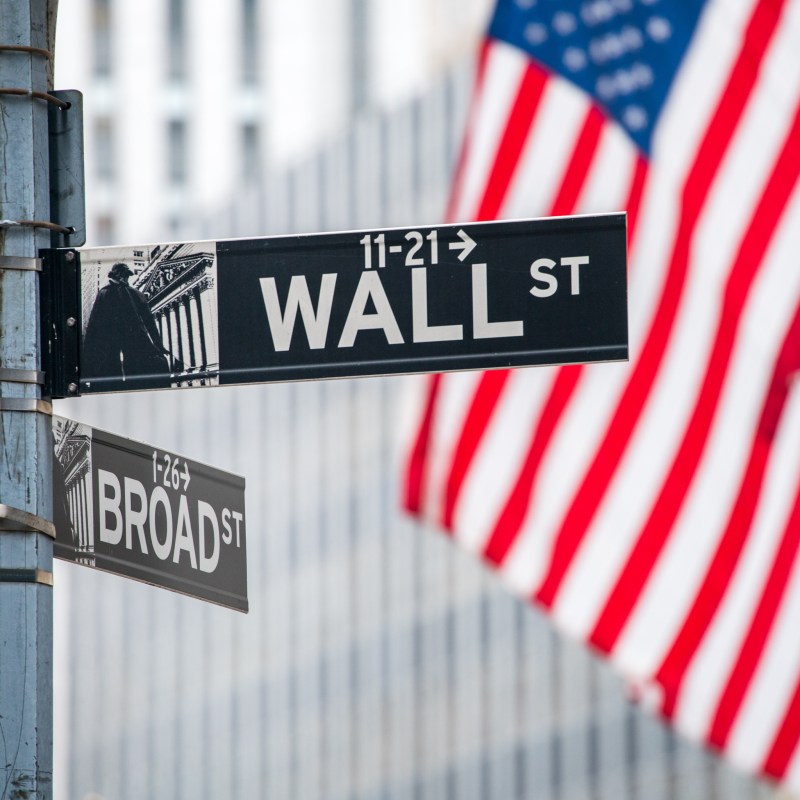
I don’t know if you’ve heard, but there’s a U.S. presidential election taking place on November 3. In addition to all the feelings associated with each candidate’s ideas and what they mean for the country, here at TravelAwaits, we’re also wondering if who wins the White House will affect our savings, and in turn, our fun money for travel (whenever it’s safe to do so again).
Videos by TravelAwaits
How much does the actual election or political party’s control have to do with the economy and our portfolios? We spoke with Edward Jones Investment Strategist Angelo Kourkafas for a historical look so we know what to expect moving forward.
TA: Does the outcome of a presidential election affect the stock market and, in turn, investments?
Kourkafas: History shows us it’s the fundamental factors — such as economic growth, rising corporate profits, and interest rate conditions — that are the more powerful and lasting determinant of market performance. This is not to downplay the importance of the U.S. presidency or the gravity of this election, but instead to serve as a reminder that, for investors, performance is more reliably driven by economic health than political party. White House policies can help shape the economic terrain, but history shows that broader path has been rather similar over time, even as the party in the Oval Office has shifted.
Also, the nature of our democratic system largely limits the ability of one administration or political party to fully reengineer the economy, keeping consumer and business behavior behind the wheel over time.
TA Takeaway: Don’t be surprised if you see some market swings next week. Stocks dropped after the last three elections, but the market quickly reversed course.
TA: Historically, what happens when a Republican wins? What happens when a Democrat wins?
Kourkafas: Since World War II, the average annual return of the U.S. stock market has been about 10 percent. It has performed well under both Republican and Democratic presidents, with the strongest annualized returns occurring during the Reagan (R), Eisenhower (R), Obama (D), Clinton (D), and Ford (R) presidencies. The average return for the Dow Jones Industrial Average during Democratic presidencies has been 12.5 percent and 7.9 percent under Republican presidencies. That gap narrows some when accounting for inflation, which was higher during the Democratic presidencies. We do not attribute the return differential to party policies but rather to the fundamental backdrop.
TA: If a presidential election doesn’t generally affect the stock market short term, are there ever elections, presidential or congressional, that affect the stock market short or long term? If so, what has to happen in the election in order to affect the markets?
Kourkafas: We believe that the election is having a short-term impact on the markets, but not a long-term one. Historically, market volatility has risen leading up to elections and then subsided after. This election poses uncertainty, and markets hate uncertainty. Therefore, we expect daily market swings to remain elevated through the election. Given the potential for a contested election result, election-driven volatility may extend further than normal.
TA Takeaway: Most of you remember the hanging chads from the 2000 election. The market did remain volatile until the outcome was settled in December of that year, and then the volatility subsided.
TA: Long term, what should investors be looking to do well and poorly if Trump wins? What about if Biden wins?
Kourkafas: A Trump win would likely maintain the status quo in terms of lower taxes and deregulation as means to supporting the recovery. A Biden win would likely be accompanied by higher taxes — most impactfully for corporations and higher-income earners — but this drag could be more than offset by a larger infrastructure bill or fiscal package post-election. The candidates’ disparate policies pose some unique implications for certain sectors such as energy and healthcare, but history has shown us that each industry can survive and quality companies can thrive under a range of political scenarios.
TA: What advice would you give investors ahead of the election?
Kourkafas: Avoid playing politics with your portfolio. We do think election uncertainty will be a catalyst for market fluctuations. However, staying invested and building an appropriately balanced, diversified portfolio can be an effective strategy for navigating market volatility.
We think the economic backdrop warrants appropriate balance across equity sectors, while the broader global rebound still supports some diversified exposure to international markets.
Regardless of which party gets elected in 2020, it’s not unreasonable to expect taxes will rise at some point in the near or distant future, which may present the opportunity to discuss strategies with your financial advisor and tax professional, such as Roth conversions. There may be even more flexibility with your tax situation to take Roth conversions in 2020 since requirement minimum distributions were eliminated for 2020 due to the CARES Act.
TravelAwaits’ Takeaways
You might not feel good about making big financial decisions, like an expensive vacation, right now, but that probably has more to do with COVID than the election, although we understand the two are connected.
Travel companies have figured out that to get us traveling again, they’re going to need to be flexible and offer refunds and great incentives. Plus, window-shopping is free, so check out TravelAwaits’ latest to start at least thinking about where you’d like to travel next year.
